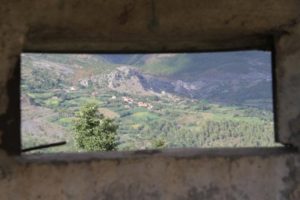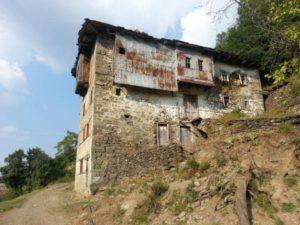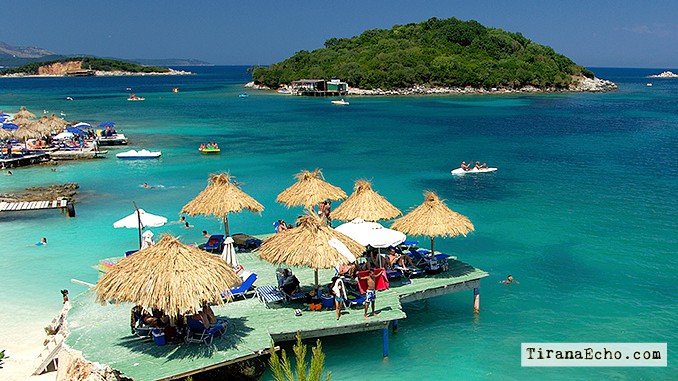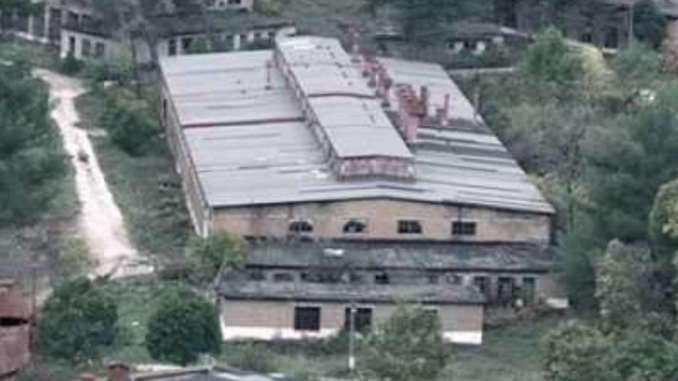Albanian Tales of heroism on the Second World War’s Forgotten Battleground
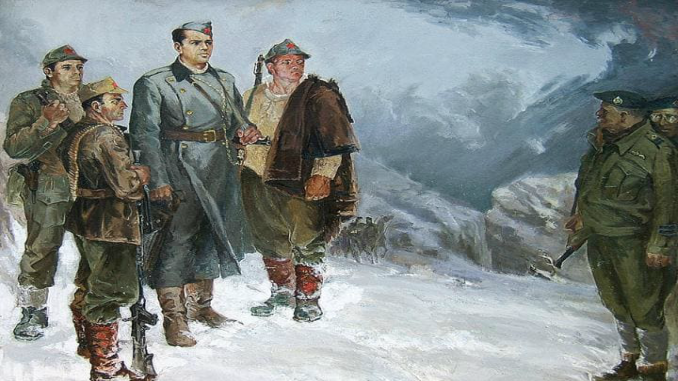
At the top of a steep meadow stood the crumbling remains of an old sheep pen. In the valley below, cooking smoke rose above the slate-tiled roofs of a village, and a light breeze carried the sound of wheat being hand-scythed. Rushing headwaters glinted in the sun where the Shkumbin river wound through the valley and disappeared around a bend.
It was hard to imagine these mountains in eastern Albania being anything other than serene. But this, I discovered, was the very spot where Brigadier Edmund “Trotsky” Davies, who was leading Special Operations in Albania against the occupying Germans, was captured in 1944.
As a part-time soldier, I thought I knew my military history, but I had no idea that the British had done anything in Second World War Albania. My guide to this little visited part of Europe was Ed Reeves, a man who is researching for a book about Davies and who has set up a specialist tour operator, Balkan Secrets.
We began in Bize where Davies – who earned the ‘Trotsky’ appellation for having displayed “a kind of disciplined bolshevism” as a Sandhurst cadet) – was dropped by parachute in September 1943. Today, Bize is a small Army training area. In the derelict, concrete shell of a communist-era farm, a café served soldiers the traditional Balkan breakfast of coffee, cigarettes and raki (a strong, clear spirit). There was no sign of Davies’s HQ, which included chairs, tables and even filing cabinets.
In summer sunshine, Bize was filled with the tinkle of streams and a carpet of wildflowers. But in November 1943, Davies and his men were discovered by German troops and had to escape south through waist-deep snow.
We followed their route over a pass into the Gurakuq Valley, munching on plums that we plucked from trees. The gullies and ridges of this landscape make any walk longer than it looks. It was late afternoon when we arrived in the village of Orenje, and the house of Ferit Balla, whose father Beg, had given the British sanctuary.
“My father was a Partisan rebel,” says Ferit, “So of course he helped the British. But then the Germans came, and they took everything as revenge – meat, chicken, cows, even blankets – then they blew up the house. My father watched them do it from the hills.”
The stone guesthouse that we stayed in, with whitewashed walls and flagstone floors, is built on the same site. Ferit managed to retrieve some artefacts from the ruins, including the Olivetti typewriter that Davies had brought from Bize. He keeps it in a museum at the house, full of artefacts from the era.
The next morning we headed towards a pinnacle of rock, in which the Partisans had hidden a printing press, which they used to produce anti-collaborator leaflets. In hazy sunshine we picked wild strawberries until our mule-handler, Rushdi, quietly led us to a clump of trees.
“My family were Partisans,” he said, “My grandfather and great uncle were interrogated by the Germans, then killed on this spot when they refused to give up the location of the printing press. Their bodies were hung from those trees as a warning.”
Rushdi took the reins of his mule and we followed him to that precious location in a landscape of shattered limestone. A narrow cleft led between two columns of rock and we climbed a natural staircase. In a depression, protected on three sides by tall chalk walls, was the entrance to a cave, which could only be entered by sliding through a crack. No wonder the Germans never found it. I peeked inside, but it looked like the roof had been collapsed with explosives.
We carried on to an old military road. Hidden by forest, it crossed a ridge with a commanding view of the Shkumbin river, up to a plateau. Davies had spent a cold December night here, shivering in the open, but on a warm summer’s eve, it was the perfect place to pitch our tents. We gathered wood for the fire, and a full moon rose as we tucked into our dinner: a tasty soup made with vegetables from Ferit’s garden.
The following morning we brewed Turkish coffee on the fire, loaded the mule and skirted the mountain on a dirt road, where we found wolf-prints, bear-prints.
The sun was setting by the time we arrived in the village of Fushe-Stude where we camped in a field lined by cypress trees. Reeves had decided to start his tour company, after receiving some remarkable hospitality in a café here – help with a burst tyre, a delicious lamb meal and a bed for the night, all free of charge.
Source: telegraph.co.uk

